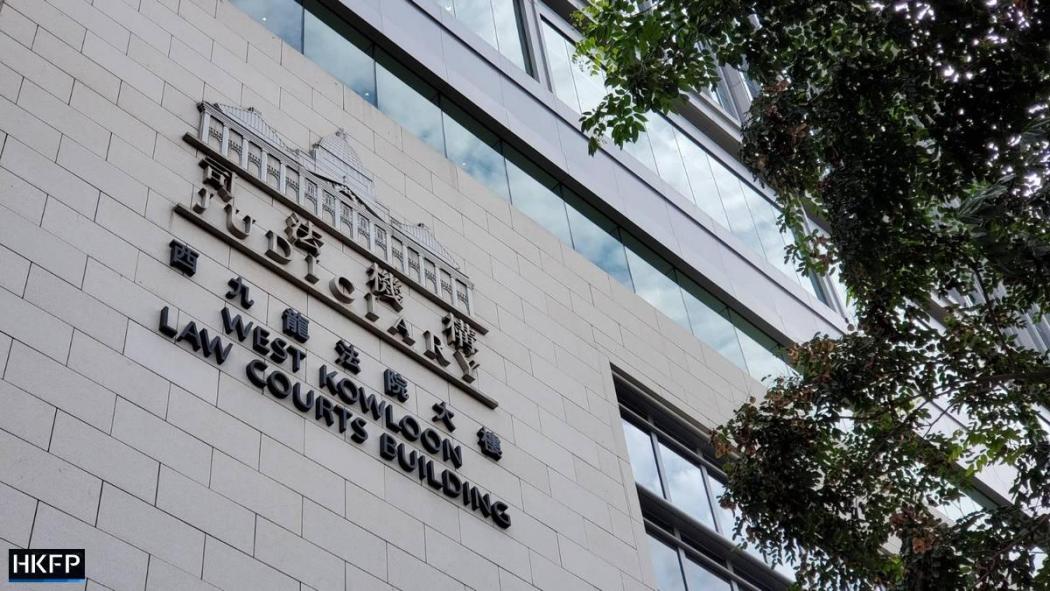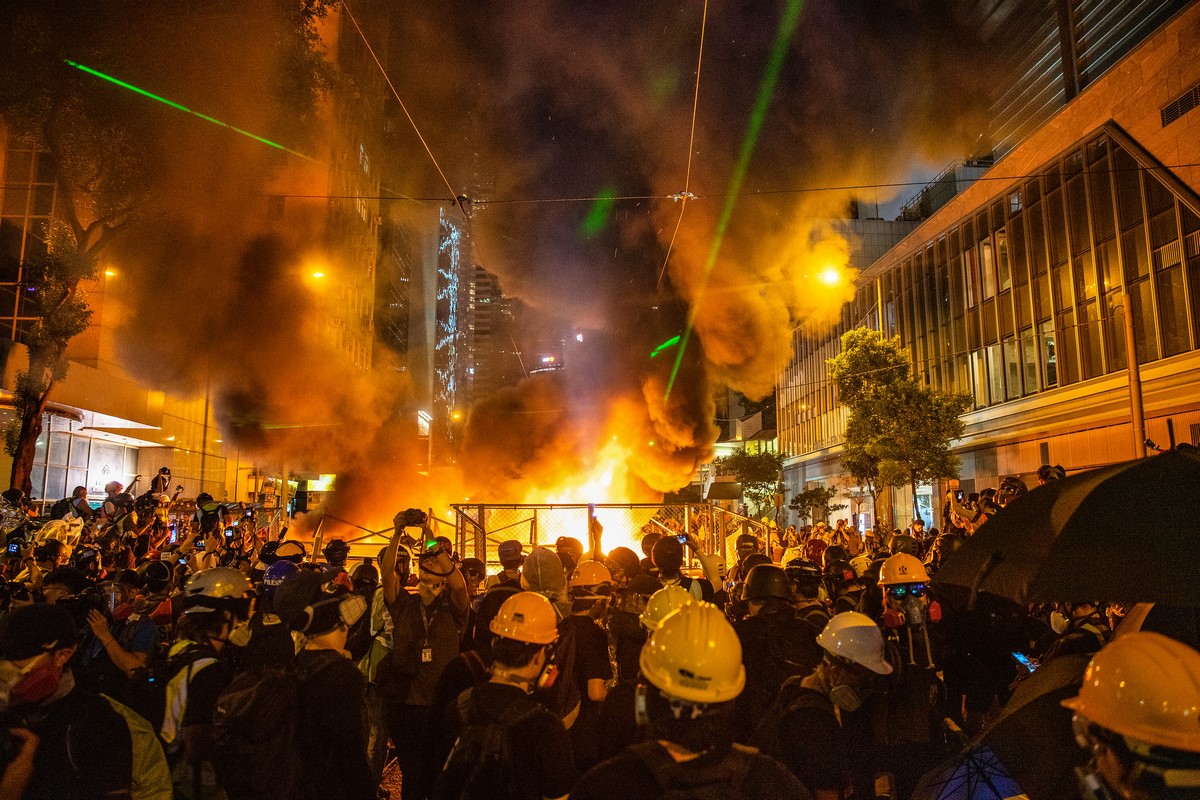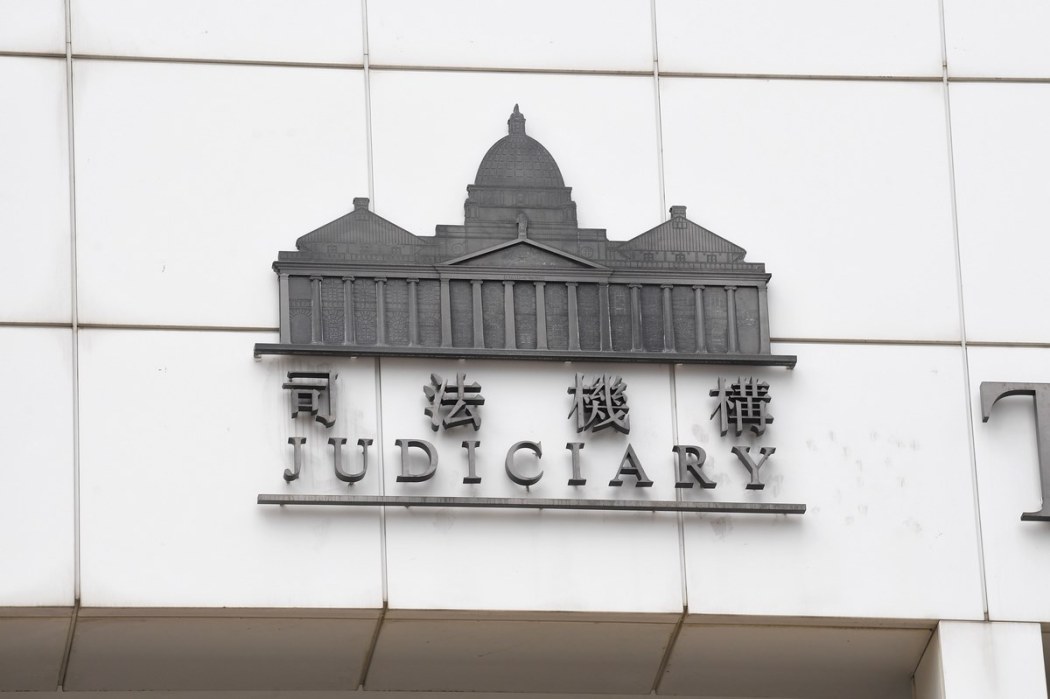A group of young Hong Kong lawyers have created a database of magistrates’ rulings in protest-related cases in a bid to safeguard the rule of law, amid unprecedented public interest in court hearings after thousands were prosecuted over the 2019 unrest.
The Compendium Project – launched in June – has compiled information on more than 500 protest-related cases that were handled by all seven magistrates’ courts. From the name of the magistrate to the reasons for the verdict and sentence, the platform seeks to provide written records of lower court hearings that are rarely made public by the authorities.

Behind this community effort was corporate law solicitor Ada, who used a pseudonym for fears of reprisals. The 26-year-old told HKFP the project was inspired by an event in June last year, when prominent pro-democracy barrister Margaret Ng exchanged views with law students on whether the city’s rule of law was “dead” – before the sweeping national security law was enacted.
Now that more than 10,000 protesters have been arrested and over 2,500 charged, Ada said she and some other young lawyers who were sympathetic to the pro-democracy movement were looking for ways to do something.
With guidance from Ng, Ada and her peers – including some junior barristers and trainee solicitors – decided to consolidate the case details shared by court attendees on a Telegram channel into an online compendium with search functions. They also held workshops to help the layman writers make standardised and organised notes of the hearings.

“Most of us don’t work on criminal or public law cases, so we can’t really help them [protesters]. What we can do is very limited, so we had this guilt and wanted to seek redemption,” Ada said. “We wouldn’t do anything high-risk, but we are very concerned about these cases. Margaret reminded us that there is a gap in the magistrates’ courts’ judgements.”
‘Kept in the dark’
The Legal Reference System managed by Hong Kong’s judiciary seldom publishes written judgements by magistrates. Despite having audio recordings of all the hearings, the judiciary mostly shares transcripts and summaries of cases heard in the higher-level District Court and above.
One of the project consultants, barrister Chris Ng, told HKFP that such a practice had made it difficult for lawyers to check the legal principles and sentencing guidelines adopted by different magistrates, and whether their rulings in cases of a similar nature were consistent.
“Lawyers have always been kept in the dark,” he said.

In response to HKFP’s enquiries, the judiciary said magistrates’ courts handle more than 20,000 criminal cases a year. It must “strike an appropriate balance” between public interest and “prudent use” of judicial resources when considering whether to transcribe oral judgements. A press summary is uploaded on a case-by-case basis.
“We will also need to consider, among others, whether the judgment concerned has any jurisprudential value,” a spokesperson for the judiciary said.
Ada said the high volume of cases dealt with by magistrates – which were deemed as “less valuable” in the past – meant providing such documents would mean much more administrative work for the judiciary.
“People did not pay much attention to cases in the magistrates’ courts so there is little incentive for the judiciary to keep written judgements and publish them later,” she said, adding there was “no transparent standard” for when magistrates’ rulings would be uploaded online.

As at the end of July, the city’s magistrates’ courts were processing 150 protest-related cases, while 1,101 had been completed.
Managing expectations
Junior barrister Terence, who requested a pseudonym for fear of retaliation, said the compendium is most useful when he is preparing for sentencing in his cases. The 25-year-old looks for precedents on the website by searching with keywords such as the magistrate’s name or the name of the offence, as opposed to scanning dozens of news clippings.
Terence said the magistrates themselves were also interested in knowing how their colleagues had handled cases linked to the citywide protests two years ago, especially when they involved juvenile defendants.
“Following the social movement, the whole sentencing landscape has changed. To put it simply, the sentences became heavier,” he said.

The new database shows that the most common offence was criminal damage, followed by possession of an offensive weapon. Among those prosecuted in the magistrates’ courts, 257 admitted guilt, while over 100 people stood trial for 358 charges.
Some were jailed or sent to detention centres and rehabilitation centres, while others were given probation or bound over.
“In the past, no one really cared about what happened in the magistrates’ courts. Discrepancy in sentencing was never at the centre of public attention… but court news became more prominent over the past few years,” Terence said.
Using the compendium to check a magistrate’s prior rulings, the young barrister said, would help him manage his clients’ expectations and better prepare his courtroom strategy.

“You would know if the magistrate leans towards a heavier or more lenient sentence. Then you would not pitch [propose] something that is out of range,” he said.
Data privacy concerns
A number of similar databases have sprung up in Hong Kong in recent years. Online news outlet Citizen News has an archive of key incidents in the months-long protests and the number of protesters charged over those events. Users may also look up a specific offence to find the relevant legal provisions and the number of people who faced that charge.
Ada said her team had referred to the existing platforms when they designed their own. She admitted their database was “less detailed” than they expected, with information such as the defendants’ gender and occupation and the case number excluded. They also avoid mentioning ongoing cases to minimise the risk of committing contempt of court.
The lawyer explained that the lack of data was partly due to limited manpower to input it, but more importantly because of privacy concerns.
“We have thought about how the authorities may go after us and the only thing would be data privacy concerns. Showing a name may lead to more chances of getting complaints, especially from the prosecution,” she said.

Hong Kong has stepped up actions against the invasion of personal data privacy with a new anti-doxxing law. The legislation – passed with full support from pro-establishment lawmakers on Wednesday – will give the local privacy watchdog power to make arrests without a warrant.
Ada and her teammates conducted “prudent risk assessment” and took other information security precautions by moving its domain from Singapore to another offshore domain. They also arranged cyber security training to prevent their electronic devices from being hacked.
“We have thought about the worst situation in which they could identify us, and get warrants to seize our computers. But after doing all those mitigating measures, we decided to go ahead,” the solicitor said.
But Ada felt their work is not especially risky since information used to create the case summaries was all in the public domain. She said there was a database operated by the 803 Fund – founded by former chief executive Leung Chun-ying – which carries the defendants’ full names, ages and occupations, alongside bounties ranging from HK20,000 to HK$1 million for “wanted” protesters and activists.

“If we are targeted, in a fair world, then [the 803 Fund] should come before us,” she said.
Rule of law
The online archive will hopefully become a printed publication one day, Ada said, but the team will need to give thought to the index arrangement to match the standards of other legal bulletins or case digests.
The project’s low-profile adviser Margaret Ng, who was handed a suspended sentence in April for organising and taking part in an unauthorised assembly in August 2019, said in her new book about the rule of law that Hongkongers have developed an “unprecedented” interest in judicial procedures.
“Self-initiated” citizens who record court proceedings, and the compendium project, were both proof that the rule of law would not be “taken away” easily, she said.
“Capable people in the industry and the persistent crowds, will make taking away the rule of law very difficult.”
Support HKFP | Policies & Ethics | Error/typo? | Contact Us | Newsletter | Transparency & Annual Report | Apps
Help safeguard press freedom & keep HKFP free for all readers by supporting our team

LATEST FROM HKFP
HKFP has an impartial stance, transparent funding, and balanced coverage guided by an Ethics Code and Corrections Policy.
Support press freedom & help us surpass 1,000 monthly Patrons: 100% independent, governed by an ethics code & not-for-profit.










